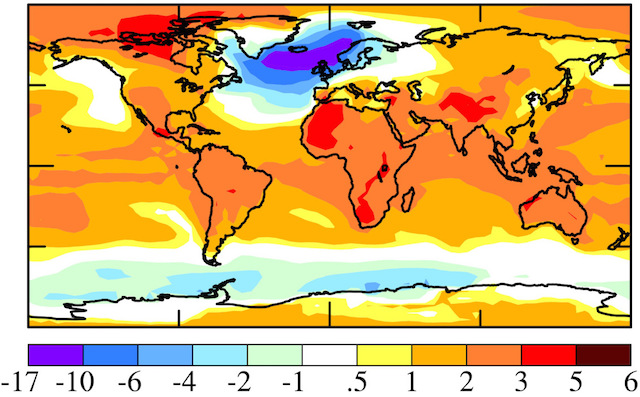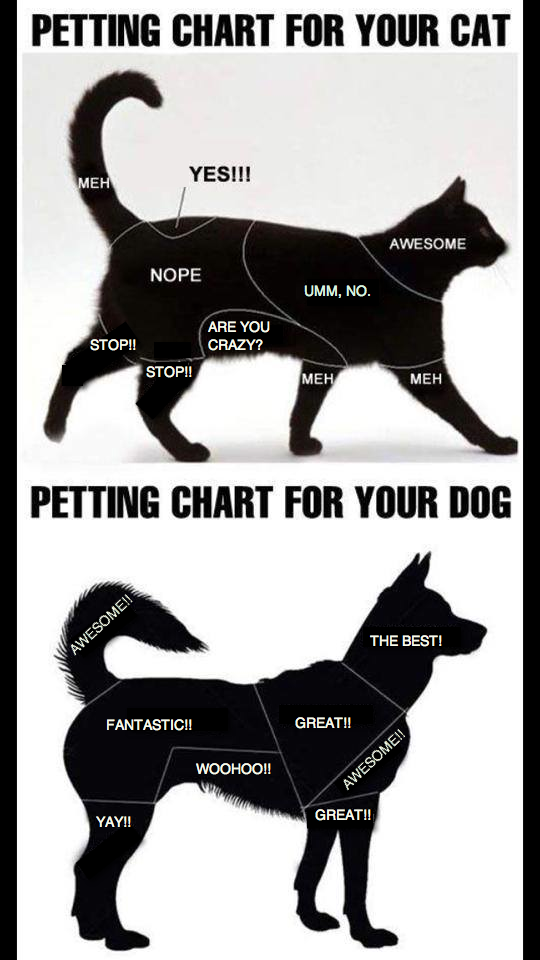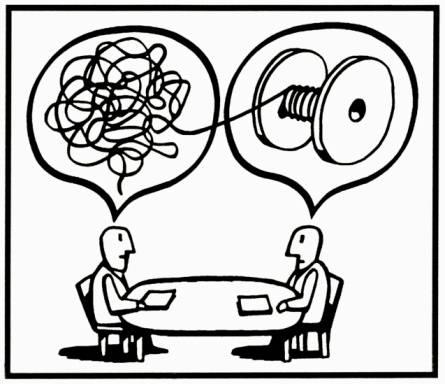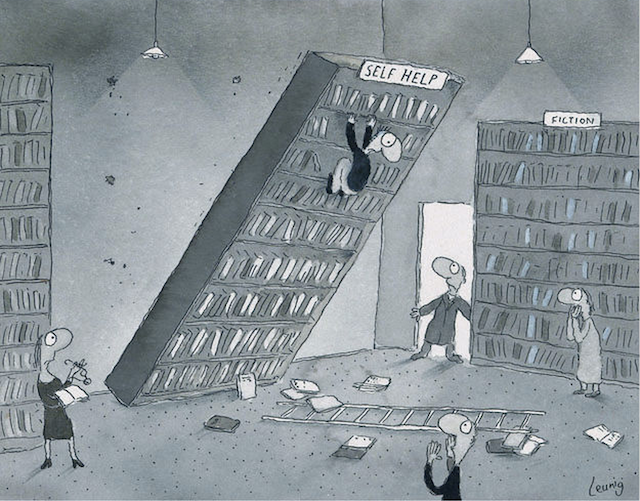
one of many disturbing warming scenarios from the latest study by Jim Hansen’s team shows that global warming is far from uniform; total glacial melt in Greenland (or Antarctica) would set the stage for constant storms of unprecedented size and total disruption of ocean currents and jet streams, rendering adjacent land areas frozen and unliveable (thanks to Sam Rose for the link to Robert Fanney’s work) UPDATE: The Greenland Cold Blob has apparently already started (thanks to 3Es Global Risk Report for this new link)
More and more I’m beginning to think about our future in terms of the kind of Great Migration that accompanied the last ice age 20,000 years ago — but this time it will be a migration (generally) toward the poles instead of toward the equator, and it will be billions of humans on the move, not millions, as runaway climate change makes much of the planet from 45ºN to 45ºS uninhabitable, and as drought, inexhaustible wildfires, massive storms, flooding and tropical diseases encroach and push us further every few years.
This will likely start within the next 20 years and then become the usual way of living in the decades to follow, until life as we know it today is forgotten, and human numbers (mostly due to collapsing birth rates) plummet. Even if the essential infrastructure of civilization survives (which is unlikely in the face of the utter economic collapse that such massive forced migration will bring about), that infrastructure will simply be abandoned, since it will be of no use to post-collapse nomadic humans. This is the way almost all civilizations have ended — not by conquest or internal purge, but when they became unsustainable and their citizens found they no longer served a useful purpose and simply walked away from them (thanks to Eric Lilius for this link).
“Poor Richard” (Saunders) has started thinking about what this might mean for preparations today. If we’re all going to be on the move, progressively toward the poles and away from storms and flooded coasts, how does this change our concept of “sustainable community” and what we might do now to prepare for the Great Migration? He suggests:
Self-reliance is revolutionary. In the past self reliance has often been built upon resources such as land and capital. In a collapse of civilization assets including land may become too hard to hold onto. In that case the greatest asset may be a body of knowledge and a set of skills that allow people to live off the land in a more mobile or nomadic configuration. If that’s the case, it might behoove us to acquire that knowledge and those skills in advance. It might also make sense for us to prepare for a modern, nomadic hunter-gatherer lifestyle by “planting” resources into the environment, perhaps hiding some resources in plain sight. One way of doing this might be scattering permaculture plantings, forest gardens, etc. throughout the range of territory we might expect to inhabit.
I’m attending an Intro to Permaculture session next month, and this is the thought I want to plant in the minds of the organizers and attendees.
~~~~~
PREPARING FOR CIVILIZATION’S END

recent regional air quality report, the result of wildfires burning out of control longer than usual due to an international shortage of wildfire fighters
Goodbye Cascadia: “An earthquake will destroy a sizable portion of the coastal Northwest. The question is when.” The New Yorker’s Kathryn Schultz, in an award-worthy article, explains why.
Toxic Bloom Threatens West Coast Marine Life: As if overfishing and pollution weren’t enough, climate change has unleashed a massive “blob” of hot water sitting long-term off the entire North American west coast, which has produced a “red tide” algae bloom that has infected much of the offshore marine life with deadly toxins.
One Economic Collapse, Coming Right Up: Zero Hedge explains why we’re headed for a crash that will make 2008 look like nothing. “A critical thinking individual might wonder how new home sales could be down 60% from 2005, while home prices are 15% higher than they were in 2005. Don’t the laws of supply and demand work anymore?… I wonder who is responsible for this?” (hint: it’s the bankers, and the Fed)
Top Predators (Other Than Humans) Self-Limit Their Numbers: Wild creatures at the top of the food chain are so connected to the web of life on Earth that they intuitively self-limit procreation to stay in balance with the ecosystems in which they reside, minimizing suffering for all. Contrary to popular belief that animals procreate as much as possible until and unless limited by predators or disease, this self-management seems endemic to almost all bird and mammal species, and it makes perfect evolutionary sense. If only the human species was still similarly so connected…
“Sustainability is Destroying the Earth”: A writer in the Deep Green Resistance movement explains why none of our “green” activities, conservation activities or protests have any real effect on the destruction of our planet. If you really want to bring about change, the writer suggests, you will have to become much more radical in what you do. I think that’s correct —Bill McKibben, 350, Greenpeace (as if it rather than the economy had anything to do with Shell’s decision to stop arctic drilling!), Naomi Klein, Avaaz and the rest of the neo-environmental movement have been completely coopted and their efforts are, in my opinion, worse than useless. But as a student of complexity I’m not convinced that Deep Green Activism will accomplish much more on any scale — the “block it, break it, take it” direct actions that DGR calls for may cause minor delays to the destruction, but will give corporatists and their PR machine ammunition to discredit opponents (all of us) as “terrorists” and won’t have much long-term impact in any case. Better I think to do below-the-radar local actions, quietly, and what Joanna Macy calls “holding actions” that are realistically intended not to bring about change, but to slow down the destruction a bit, in unspectacular ways, so that the industrial culture will have destroyed less by the time it sputters and collapses of its own weight. This is not work for idealists, optimists or the impatient. Thanks to Emily MacDonald for the first two links.
Complexity and Climate Change: Jonathan Franzen explains why complex systems are so hard to change, and why it’s so much easier to claim (and believe in) some simple, blame-shifting cause for every problem. Thanks to Raffi Aftandelian for the link. Excerpt:
The reason the American political system can’t deliver action isn’t simply that fossil-fuel corporations sponsor denialists and buy elections, as many progressives suppose. Even for people who accept the fact of global warming, the problem can be framed in many different ways—a crisis in global governance, a market failure, a technological challenge, a matter of social justice, and so on—each of which argues for a different expensive solution. A problem like this (a “wicked problem” is the technical term) will frustrate almost any country, and particularly the United States, where government is designed to be both weak and responsive to its citizens. Unlike the progressives who see a democracy perverted by moneyed interests, [philosopher Dale] Jamieson suggests that America’s inaction on climate change is the result of democracy. A good democracy, after all, acts in the interests of its citizens, and it’s precisely the citizens of the major carbon-emitting democracies who benefit from cheap gasoline and global trade, while the main costs of our polluting are borne by those who have no vote: poorer countries, future generations, other species.
The Great Forgetting: An excerpt from The Story of B by Daniel Quinn recently turned up on the Films for Action site. If you haven’t read the book, it’s a great introduction to a book well worth reading. It explains how our modern disconnected industrial “taker” culture emerged as dominant over thousands of connected, sustainable “leaver” cultures. Thanks to Seb Paquet for the link.
~~~~~
LIVING BETTER
A New Law of the Commons: David Bollier explains how existing private property laws and “rights” lie at the root of inequality, poverty, abuse of power and the dysfunction of our economic systems, and proposes a new emergent Law of the Commons. “What is this all about, ultimately? It’s about honoring the sovereignty of people to devise their own forms of governance to meet their needs and local context. It’s about the importance of bottom-up initiatives and participation, and of transparency and accountability. It’s about meeting people’s needs without relying on the dysfunctional formalities of bureaucracy, the market/state duopoly of power, or the social inequities associated with markets.” Parallel steps include legal reforms to liberate cooperatives from the burdensome laws required to prevent the worst abuses of for-profit corporations (the work the SELC is doing), and the development of Community Land Trusts to enable stewardship of the land for the benefit of all. Thanks to “Ah Uhm” at PLAST for the link.
Returning Land Profits to the People: Martin Adams goes a step further than David Bollier, advocating the use of Community Land Trusts to gradually supplant private ownership. This might start with freezing the value of land at current values and returning all future appreciation to the community; land then becomes something to use (hopefully with care and good stewardship) rather than something to speculate on, and because the increase in value stems from the actions of the community (and not those of the investor) it’s only fair that the incremental proceeds from sale at that higher value accrue to the community. Thanks to Mark Frazier for the link.
The Worker Co-op Academy: The SELC is also now offering training in how to set up co-operatives. I would love to see this expand beyond California, and to see it radicalized to adopt the Natural Enterprise model.
Malama Aina: A stunning short Hawai’ian film (the title refers to “careful stewardship of the Earth”) questions a society that rewards and celebrates “profit” — the taking of more than one gives — and suggests a better, more ancient worldview. Thanks to Jacqueline Massey for the link.
Why I Defaulted On My Student Loans: A very controversial article (a lot of people who have struggled and suffered for years with un-repayable student or other debts complained that the author was “irresponsible”) suggests just walking away from exorbitant debts. There used to be a way for people in this situation to escape; it’s called declaring bankruptcy. But since the banksters seized power it’s now much more difficult to do, and has lifelong consequences. The Occupy movement is taking a lead here, blocking foreclosures and evictions and supporting citizens buffaloed by the criminal usury gangs called the “financial services industry” into getting into debts they (the lenders) know full well can never be repaid. If there’s ever a revolution against inequality, this will be the front line of activism.

(graphic circulating on the Internet; original source unknown)
Shaking Off the Stress: Mimicking wild creatures’ vigorous physical “shaking off” process after a stressful incident, Trauma Releasing Exercises purport to offer the same stress-busting benefit for humans, focusing on tightening and relaxing the psoas muscles. Thanks to Beth Patterson for the links.
Learning How to Die: Stephen Jenkinson explains how our radically individualistic culture, separated from history and nature and tradition, leads us to fear and shun death, among a host of other dysfunctional behaviours. Thanks to Eric Lilius for the link.
How Children Really Learn: Institutionalized schooling leads to a distorted sense by education “experts” of how children learn, and hence to a brutal, dysfunctional and damaging education system. Do your children and the world a favour and help them escape. Thanks to PS Pirro for the link, and the one that follows.
Struggling Nations to Do-Gooders: We Don’t Need Your Help: Back in 1968 Ivan Illich wrote a scathing attack on the incredible damage and waste caused by well-intentioned but arrogant first world do-gooders coming to developing nations and imposing their culture, “assistance” and ideas on them, before going home thinking they’d helped. It’s still pertinent today.
Bowen Island’s Green Resource Guide: The Green Guide is the latest useful initiative from Bowen in Transition, which I’m honoured to be a member of.
The Idaho Stop Law: A really sensible law in Idaho allows bicyclists to treat stop signs as if they were yield signs and red lights as if they were stop signs. This results in cyclists clearing intersections quickly and safely. When SF police were ordered to enforce stops and red lights for cyclists the same as for cars, protesters showed what happens when bicyclists actually do that, with comical (except to frustrated, backed-up motorists) results. In another sensible ruling in Idaho, the courts have ruled their ag-gag law unconstitutional. However, dozens of other state ag-gag laws, passed under pressure from factory farm corporations, remain on the books. Thanks to Tree for the links.
No Such Thing As Time: If we (by which I mean I) could only realize that there is no such thing as time, or the separate ‘self’, everything would be so much easier. Maybe. Thanks to Tia Carr for the link.
~~~~~
POLITICS AND ECONOMICS AS USUAL

cartoon on the TPP by Keith Tucker
Conservatives Lead in the Polls, Again: As Canada’s four progressive parties snipe at each other and split the vote, the ultra-right governing Conservative Party looks likely, with just 32% support, to win another plurality, and perhaps even majority, in the election October 19th. A NYT editorial explains what this means for Canada. A Macleans magazine investigation explains what’s already been lost (thanks to Eric Lilius, who also sent me this hilarious spoof of Harper’s warmongering, for the link).
Even the New Yorker Criticizes “Free” Trade Agreements: James Surowiecki acknowledges that the provisions in so-called “free” trade agreements like NAFTA and the upcoming TPP that allow corporations to sue governments (i.e. to extort money from taxpayers) when their “freedoms” to pollute, to exploit, and to overcharge are restricted by domestic laws, are outrageous and need to be excised (see cartoon above). US Senator Jeff Sessions, who opposed TPP, wrote “Washington broke arms and heads to get that 60th vote–not one to spare–to impose on the American people a plan which imperils their jobs, wages, and control over their own affairs. It is remarkable that so much energy has been expended on advancing the things Americans oppose, and preventing the things Americans want.”
Nutritional Supplements: What’s Not in the Bottle: If you’re taking vitamins and other nutritional supplements, please ensure (a) you’re actually getting what’s on the label (you’re often not), and (b) that they’re actually effective for what ails you (most aren’t). This also applies to vitamins and minerals, most of which are useless if you eat properly.
A Dark & Sticky Business: Linda McQuaig, a Toronto NDP candidate in the October 19th federal election, dared to say the Tar Sands bitumen should be left in the ground. The reaction, even from within her party, was predictable.
Coopting the Sharing Economy, Part LXI: Having coopted the sharing of spare rooms and cars for profit-making purposes, capitalists are now trying to coopt the co-living movement. They just can’t understand why anyone would do anything without a profit motive. Thanks to Tree (and Pax) for the link.
Debunking the 9/11 Truthers: The brilliant investigative reporter Nafeez Ahmed explains why, despite the incompetence of the media to explain the total collapse of the towers on 9/11, it was no inside job. Rather, he suggests, it was likely shoddy design and/or corner-cutting in the safety of construction of the towers in the first place that led to the massive collapse of four entire buildings.
But Some Are More Equal Than Others: Ultra-rich Californians argue that as long as they can pay for it, they should not be restricted in how much water they use on their lawns and golf courses, no matter how serious the drought gets. Libertarianism run amok.
~~~~~
FUN AND INSPIRATION

microscopic photo of a tardigrade, a recently-discovered clawed bear-like aquatic creature about 1/16 of an inch long, that has been found thriving everywhere, including places of extreme cold and pressure; in poor climates they self-dehydrate to tiny condensed size and can hibernate, seemingly indefinitely, until they bounce right back when conditions improve; calling Dr Seuss!
Evolution and Complexity: David Sloan Wilson interviews evolutionary biologist Richard Lewontin, who explains how our incapacity (or unwillingness) to appreciate complexity hurts science, and why applying evolution theory to culture and sociology is flawed thinking. One of the best interviews I’ve ever read. A separate article by David Sloan Wilson explains why best practices don’t work — why inertia, preconceived ideas and aversion to innovation prevent very successful trials from getting permanent traction and allow obviously flawed and dysfunctional practices to continue in use. Another paradox of complexity.
Vegan with Attitude: Vegan Black Metal Chef shows you how to prepare some simple, wonderful, vegan meals. Hellishly funny.
The Girlfriend Closet: What’s a poly guy, living alone, to do?
Amazing New Renewable Energy Source Discovered: Some levity by Richard Heinberg. Thanks to (naturally enough) Tree for the link, and the one that follows.
Explaining Straight White Male Privilege to Straight White Males: Imagine a video game with the lowest difficulty setting ever.
Seattle Jim Page: I first heard Jim live a few months ago, and found his stirring protest songs, and lovely celebrations of simple living, truly inspiring.

(photo circulating on the Internet; original source unknown)
Live Video of Alaskan Bears in Brooks Falls: These remote 24/7 cams bother me a bit; seems like an invasion of privacy. But watching wild creatures live is fascinating. In addition to the bears, the site has other wilderness cams as well. Thanks to Susan Avery for the link.
Jim Henson Tribute: The rest of the faces behind the Muppets do a mashup of Jim Henson’s favourite songs. Really moving. Thanks to Kelly for the link.
Hyperrealist Paintings: Watch Portrait Painter Pabst make portraits using dry brush techniques that are almost alive; he also does some amazing 3D illusion paintings.
~~~~~
THOUGHTS FOR THE QUARTER

cartoon from EMJBE.com (thanks to Seb Paquet for the link)
- From Paul Kingsnorth, in the invitation for submissions to Dark Mountain volume 9, earlier this month: “Humanity is going to be humbled one way or the other, so we may as well begin the process ourselves. What might the alternatives to the Humans-As-Gods story look like, told in fiction, non-fiction, poetry and art, starting from where we are?”
- From Umberto Eco (thanks to Todd Suomela for the link): “A good book is more intelligent than its author. It can say things that the writer is not aware of.”
- From actor/musician Hugh Laurie (thanks to Jon Husband for the link): “It’s a terrible thing, I think, in life to wait until you’re ready. I have this feeling now that actually no one is ever ready to do anything. There is almost no such thing as ready. There is only now. And you may as well do it now. Generally speaking, now is as good a time as any.”
- From PS Pirro, a new poem, No Hard Feelings:
I.
It’s the water that carries us, after all,
like mermaids astride the glistening shell
of the giant sea turtle, we are slippery wet,
slick as newborns.
We are filled with the oceans, we are alive.
All my friends are anemones, supple, pliable,
bendy beneath the waves,
the salt and the sea that softens the flesh
and even the hardest of feelings.
All my friends are fluid.
II.
When John was twelve he came upon his father
golden in the early morning light, hanging
by a noose from a rafter in the barn.
When Tim was twelve he followed his mother
to the Belgium Bridge and watched as she threw
what remained of herself into the Seneca River.
When Mark was twelve he watched his father
give himself up to the tumors that stole the hard,
dry breath from his lungs.
III.
We did not kiss or hold each other close
one last time, we did not wish each other well.
IV.
When the edges get ragged, you can turn
a new seam. Again and again, you turn,
until the garment that once covered you
is a collar buttoned at your throat, a bib to catch
what crumbs may fall.
But this is not the edge.
This is the center, this is the heart,
where the rend is new
and the soft fray has only just begun,
there is still time to lay a patch,
still time to stitch things
back together.
If only I had a needle.
If only I could find some thread.
V.
All along the shores of Lake Ontario
I gather the pieces of beach glass,
frosted blue and green, bits of vessels once
whole and transparent, now fractured into
fragments, small and opaque as moonstone,
buffed and lustrous, the product of time
spent tumbling, of turbulence, of friction,
of abrasion, bruised like knees for years and years.
I fill my pockets to overflow with the beautiful
battered bits and carry them all back home.






It seems as though Wilson and Lewontin differ on the utility of applying evolution theory to culture and sociology:
“[David Sloan] Wilson’s book Darwin’s Cathedral proposes that religion is a multi-level adaptation, a product of cultural evolution developed through a process of multi-level selection for more cooperative and cohesive groups. His book Evolution for Everyone: How Darwin’s Theory Can Change the Way We Think About Our Lives attempts to give an introduction to evolution for a broad audience, detailing the various ways in which evolution can be applied to everyday affairs. …Wilson’s latest book for a general audience is The Neighborhood Project: Using Evolution to Improve My City, One Block at a Time, ” https://en.wikipedia.org/wiki/David_Sloan_Wilson
I side with Wilson and people like Dawkins (memes) and the concept of “genetic algorithms” or “evolutionary algorithms” in artificial intelligence as long as the proper distinctions between logical, biological, and cultural evolution are clearly acknowledged.
I’m also skeptical of Lewontin’s argument that science fails to appreciate complexity. IMO that’s a straw man. Also, Wilson’s points about “inertia, preconceived ideas and aversion to innovation” in science are cliches. The history of science has countless quality control failures (often due to politics or conflicts of interest) that tend get corrected in the long run.
Informative.